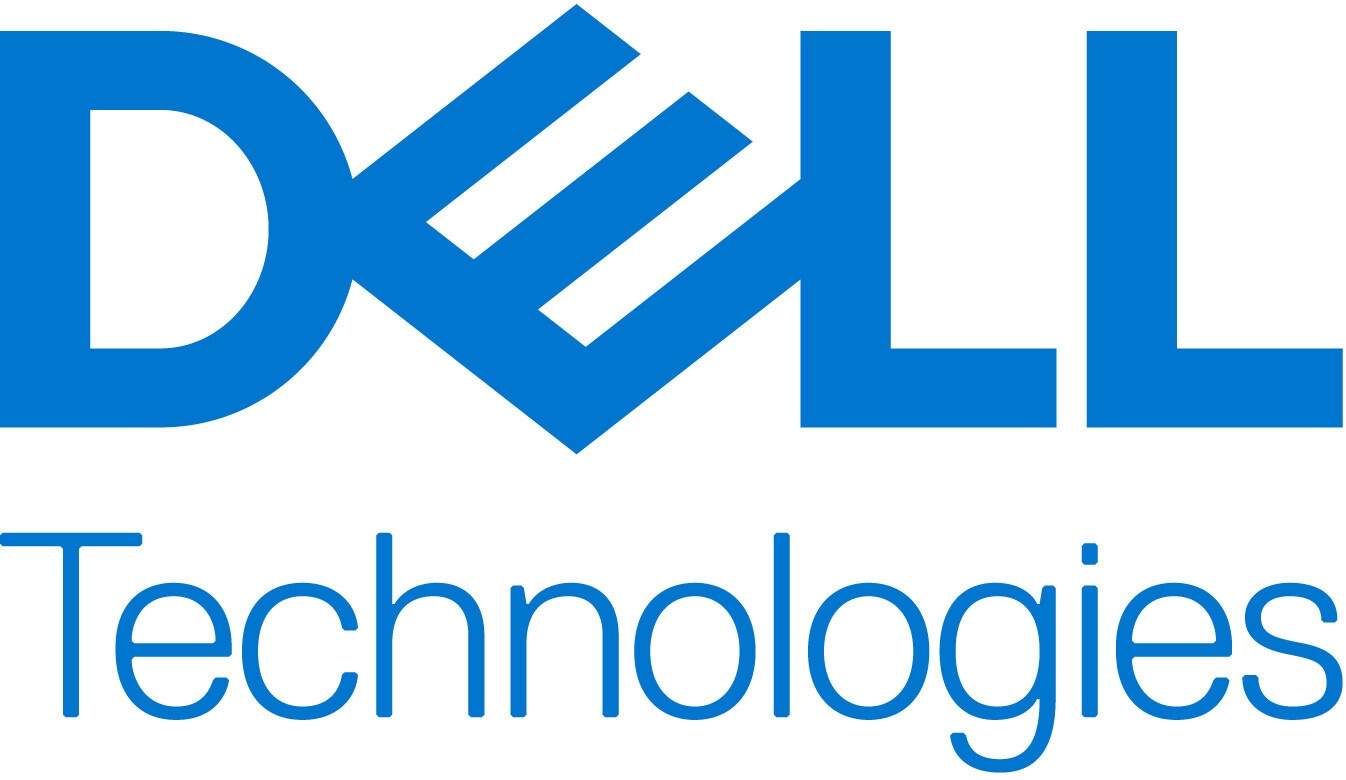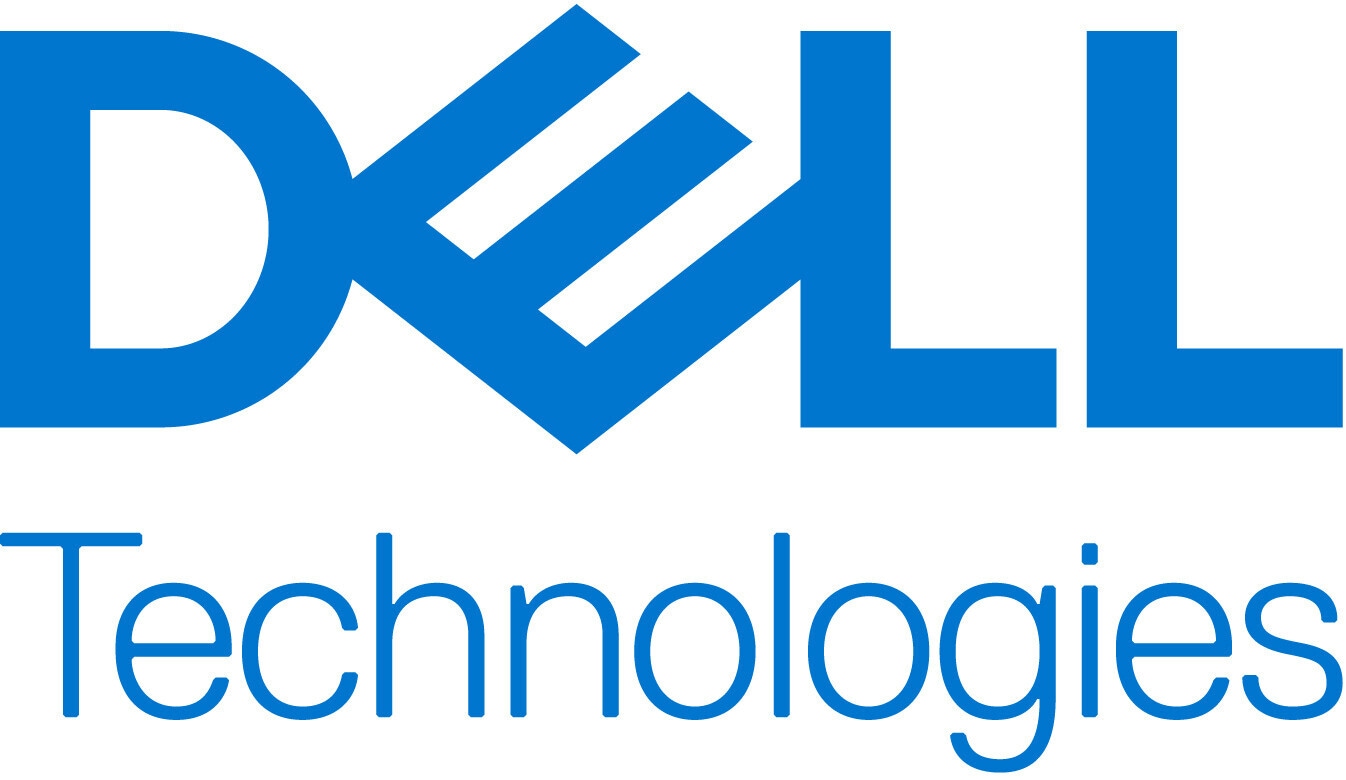Dell Technologies (DELL:NYSE) Receives Strong Buy Rating from Zacks Investment Research

Dell Technologies (DELL:NYSE) Spotlighted by Zacks Investment Research
Dell Technologies (DELL:NYSE) has been spotlighted by Zacks Investment Research with an average brokerage recommendation (ABR) of 1.50, signaling a strong buy sentiment from Wall Street analysts. This optimistic outlook is supported by 11 strong buy recommendations and two buy suggestions out of 15 brokerage firms. Such a consensus indicates a bullish perspective on DELL's stock, suggesting that many analysts see the company's shares as undervalued or poised for growth.
Despite this positive sentiment, caution is advised when interpreting these recommendations due to potential biases from brokerage firms. These firms might have their own interests, which could color their advice, not always aligning with the interests of individual or retail investors. This discrepancy underscores the importance of investors doing their own research and considering multiple sources of information before making investment decisions.
Zacks Equity Research offers an alternative to the ABR by emphasizing the value of their proprietary Zacks Rank. This ranking system, unlike the ABR, is based on earnings estimate revisions and has been shown to have a strong correlation with stock price movements. For Dell Technologies, the Zacks Rank is currently a #3 (Hold), which is based on the steady Zacks Consensus Estimate for the current year's earnings at $7.64. This stability in earnings estimates suggests that Dell's stock might not see significant price movement in the near term but is expected to perform in line with the market.
The current market performance of DELL provides a practical context to these analyses. With a recent price of $126.65, experiencing a slight decrease of 2.08%, and a trading range between $126.25 and $129.67, Dell's stock shows volatility within a relatively narrow band. Over the past year, the stock has seen a significant price range from $44.19 to $136.16, indicating substantial growth potential and volatility. With a market capitalization of approximately $90.4 billion and a trading volume of about 2.16 million shares, Dell Technologies represents a significant player in the market, reflecting both its size and the investor interest it commands.
In light of these factors, while the bullish sentiment from Wall Street analysts provides a positive outlook for Dell Technologies, investors are encouraged to look beyond brokerage recommendations. By considering Dell's current market performance and utilizing tools like the Zacks Rank, investors can gain a more nuanced understanding of the stock's potential, balancing analyst optimism with a realistic assessment of market conditions and the company's performance metrics.
| Symbol | Price | %chg |
|---|---|---|
| 7751.T | 4433 | 0.43 |
| 005070.KS | 55500 | -1.8 |
| 2382.TW | 300.5 | -1.83 |
| 6669.TW | 4365 | 1.49 |

Bernstein Upgrades Dell Technologies to "Outperform"
- Bernstein upgraded Dell Technologies (NYSE:DELL) to an "Outperform" rating and increased the price target from $175 to $180.
- Dell's stock price reached its highest over the past year at $154.70, with a significant increase reflecting strong investor confidence.
- The shareholder/analyst call provided strategic insights into Dell's financial performance and future plans, contributing to the positive outlook.
On October 8, 2025, Bernstein upgraded Dell Technologies (NYSE:DELL) to an "Outperform" rating, with the stock priced at $150.87. Bernstein also increased Dell's price target from $175 to $180. Dell Technologies is a leading provider of computer technology and services, competing with companies like HP and Lenovo in the global market.
During the Dell Technologies Inc. Shareholder/Analyst Call on October 7, 2025, key figures such as Michael Dell, Chairman & CEO, and Jeffrey Clarke, COO & Vice Chairman, discussed the company's strategic direction. The call also included Arthur Lewis, President of Infrastructure Solutions Group, and David Kennedy, Interim CFO & Senior VP of Global Business Operations and Finance.
Analysts from major financial institutions, including Simon Leopold from Raymond James and Samik Chatterjee from JPMorgan Chase, engaged with Dell's leadership during the call. The event provided insights into Dell's financial performance and future plans, as highlighted by contributions from analysts like Aaron Rakers of Wells Fargo Securities and Erik Woodring of Morgan Stanley.
At the time of Bernstein's upgrade, Dell's stock price was $150.87, reflecting a 3.51% increase or $5.11. The stock traded between a low of $144.40 and a high of $154.70, marking its highest price over the past year. Dell's market capitalization is approximately $101.44 billion, with a trading volume of 17.61 million shares on the NYSE.
Dell's stock has shown significant growth, with its highest price over the past year being $154.70 and the lowest at $66.25. This performance indicates strong investor confidence, supported by the strategic insights shared during the analyst call and Bernstein's positive outlook.

Dell Technologies Inc. (NYSE:DELL) Faces Market Challenges Despite AI Growth Prospects
- Dell Technologies Inc. (NYSE:DELL) maintains a "Hold" rating from Cowen & Co. with a price target adjustment from $125 to $130.
- The stock experienced a significant drop of nearly 9% due to a weaker-than-expected profit forecast for the current quarter, despite raising full-year guidance.
- Despite the short-term market reaction, Dell's focus on AI servers and products positions it for potential long-term growth in the technology sector.
Dell Technologies Inc. (NYSE:DELL) is a prominent player in the technology sector, known for its wide range of products including personal computers, servers, and storage solutions. The company has been focusing on expanding its presence in the artificial intelligence (AI) market, which is seen as a significant growth area. Dell competes with other tech giants like HP and Lenovo in the PC market, and with companies like IBM and Cisco in the server and storage segments.
On August 29, 2025, Cowen & Co. maintained a "Hold" rating for Dell, with the stock priced at $121.28. TD Cowen also adjusted Dell's price target from $125 to $130, indicating a cautious optimism about the company's future performance. Despite these ratings, Dell's stock experienced a significant decline, dropping nearly 9% on Friday. This drop was attributed to a forecast for the current quarter that did not meet investor expectations, despite the company raising its full-year guidance.
The decline in Dell's stock price was further exacerbated by a weaker-than-expected profit forecast for the current quarter. Investors were concerned about the company's near-term outlook, which overshadowed the positive news of strong demand for AI servers. Dell's AI-related products are seen as a key growth driver, but the immediate focus on profit margins and quarterly forecasts led to a negative market reaction.
Dell's stock price fell nearly 6% in premarket trading on Friday, driven by a disappointing quarterly profit forecast and a weaker-than-expected second-quarter margin rate. These factors overshadowed the company's optimistic full-year estimates, leading to a decrease in investor confidence. The stock's current price is $120.88, reflecting a 9.82% decrease, with a trading volume of 8,295,145 shares on the NYSE.
Despite the recent decline, Dell's market capitalization remains substantial at approximately $82.06 billion. The stock has fluctuated between a low of $119.63 and a high of $124.06 today, with a 52-week range of $66.25 to $147.66. While the immediate outlook may seem challenging, the strong demand for AI servers continues to provide a positive long-term perspective for Dell Technologies.

Dell Technologies Inc. (NYSE:DELL) Insider Sells Shares Amid Financial Fluctuations
- SLTA IV (GP), L.L.C., a director and 10 percent owner of Dell Technologies Inc. (NYSE:DELL), sold 2,824 shares at $123.50 each.
- Dell's gross margin decreased by 80 basis points to 21.6% in Q1 of fiscal 2026, impacted by competition and pricing pressures.
- The Infrastructure Solutions Group (ISG) reported a 12% year-over-year revenue increase, with server and networking sales reaching a record $6.3 billion.
On July 17, 2025, SLTA IV (GP), L.L.C., a director and 10 percent owner of Dell Technologies Inc. (NYSE:DELL), sold 2,824 shares of Class C Common Stock at $123.50 each. This transaction comes amid a period of financial challenges and opportunities for Dell, a leading technology company known for its computer hardware and software solutions.
Dell Technologies is currently grappling with a decrease in its gross margin, which fell by 80 basis points to 21.6% in the first quarter of fiscal 2026. This decline is largely due to intense competition and pricing pressures, particularly impacting the Client Solutions Group segment. Additionally, an unfavorable geographical mix in traditional servers has contributed to this margin pressure.
Despite these challenges, Dell's Infrastructure Solutions Group (ISG) has demonstrated resilience. The ISG reported a 12% year-over-year revenue increase, reaching $10.3 billion. This growth was driven by a record $6.3 billion in server and networking sales, fueled by strong demand for AI. Dell plans to ship $7 billion in AI servers in the second quarter, expecting a 10% quarter-over-quarter growth in gross margin dollars.
Dell's stock price recently closed at $123.57, a 1.69% decrease from the previous day, contrasting with gains in the broader market. However, over the past month, Dell's stock has risen by 8.42%, outperforming the Computer and Technology sector's 7.22% gain and the S&P 500's 4.51% rise. This indicates investor confidence despite short-term fluctuations.
Investors are eagerly awaiting Dell's earnings report on August 28, 2025. The company is expected to report an earnings per share (EPS) of $2.28, a 20.63% increase from the same quarter last year. The consensus estimate for Dell's revenue is $29.14 billion, marking a 16.45% increase. Dell's market capitalization is approximately $84.1 billion, with a trading volume of 3,758,567 shares on the NYSE.

Dell Boosts Full-Year Outlook Despite Earnings Miss, AI Orders Shine
Dell Technologies (NYSE:DELL) delivered an optimistic outlook for fiscal 2026, lifting its full-year profit guidance even as first-quarter earnings came in below expectations. The mixed results sent shares more than 1% higher intra-day today as investors looked past the earnings shortfall and focused on strong momentum in key growth areas.
For the first quarter, Dell reported adjusted earnings of $1.55 per share on revenue of $23.38 billion. While revenue exceeded analyst expectations, earnings fell short due to demand headwinds stemming from recently implemented tariffs.
Performance across business segments was uneven. The client solutions group, which includes personal computers and laptops, saw overall revenue rise 5% year-over-year, driven by strong commercial demand. However, consumer sales within the segment dropped 19%, signaling continued pressure in the retail PC space.
On the upside, Dell’s infrastructure solutions group posted a 12% revenue increase, while AI server orders soared to $12.1 billion—surpassing forecasts—and the company ended the quarter with a $14.4 billion backlog, suggesting continued strength in enterprise tech demand.
Looking ahead, Dell expects a robust second quarter, forecasting adjusted earnings of $2.25 per share and revenue between $28.5 billion and $29.5 billion, both ahead of consensus estimates.
For the full fiscal year, the company raised its profit forecast to $9.40 per share at the midpoint and expects revenue to land around $103 billion, signaling confidence in its ability to navigate a complex economic landscape while capitalizing on growth in AI and infrastructure solutions.

Raymond James Lifts Dell Price Target on Long-Term AI Potential
Raymond James raised its price target on Dell Technologies (NYSE:DELL) to $144 from $139, while reiterating an Outperform rating, reflecting confidence in the company’s long-term AI-driven growth despite some short-term headwinds.
The revision comes as the firm adjusts its estimates to account for delays in AI platform rollouts and accelerated PC demand, partly driven by tariff-related buying behavior. The transition between GPU generations in Dell’s AI infrastructure has been more turbulent than expected, increasing the risk of a near-term sales shortfall in AI-related products.
However, analysts remain optimistic about Dell’s positioning beyond 2025. As enterprise adoption of AI moves from training-intensive workloads to inferencing and real-world applications, Dell is seen as well-positioned to deliver sustained growth above historical levels.
With the company set to report earnings on May 29, investors may need to brace for some softness in AI segment results, but the broader story remains intact as AI infrastructure demand matures across the enterprise landscape.

Raymond James Lifts Dell Price Target on Long-Term AI Potential
Raymond James raised its price target on Dell Technologies (NYSE:DELL) to $144 from $139, while reiterating an Outperform rating, reflecting confidence in the company’s long-term AI-driven growth despite some short-term headwinds.
The revision comes as the firm adjusts its estimates to account for delays in AI platform rollouts and accelerated PC demand, partly driven by tariff-related buying behavior. The transition between GPU generations in Dell’s AI infrastructure has been more turbulent than expected, increasing the risk of a near-term sales shortfall in AI-related products.
However, analysts remain optimistic about Dell’s positioning beyond 2025. As enterprise adoption of AI moves from training-intensive workloads to inferencing and real-world applications, Dell is seen as well-positioned to deliver sustained growth above historical levels.
With the company set to report earnings on May 29, investors may need to brace for some softness in AI segment results, but the broader story remains intact as AI infrastructure demand matures across the enterprise landscape.

Dell Shares Plunge 5% as AI Costs Weigh on 2026 Margin Outlook
Dell Technologies (NYSE:DELL) saw its shares drop more than 5% intra-day today after projecting a decline in adjusted gross margins for its fiscal 2026 year. The Texas-based company cited rising costs linked to AI server expansion and lukewarm demand for its PC segment as primary factors pressuring profitability.
Dell expects its full-year adjusted gross margin rate to decline by approximately 100 basis points. During a call with analysts, Chief Operating Officer Jeff Clarke also acknowledged the company is assessing potential cost impacts from proposed U.S. tariffs under President Donald Trump’s trade policies. Clarke suggested that if input costs increase, price adjustments may be necessary.
Despite margin concerns, Dell remains optimistic about AI-driven growth. The company forecasted a 53% year-over-year surge in AI server shipments, expecting to reach $15 billion in annual sales. These AI servers, powered by Nvidia chips, are positioned to compete with offerings from Super Micro Computer and are built to handle the heavy computational needs of AI training and deployment.
For the fourth quarter, Dell reported adjusted earnings per share of $2.68 on revenue of $23.93 billion, surpassing EPS estimates of $2.53 but falling short of the expected $24.56 billion in revenue.
Looking ahead, Dell provided a mixed outlook. The company projected current-quarter adjusted EPS of $1.65 and revenue between $22.5 billion and $23.5 billion, underperforming consensus estimates of $1.83 per share and $23.72 billion in revenue.
For fiscal 2026, Dell anticipates adjusted EPS of $9.30 on revenue between $101.0 billion and $105.0 billion, aligning closely with expectations of $9.29 EPS and $103.62 billion in revenue. While AI remains a bright spot, margin compression and macroeconomic uncertainty continue to be key concerns for investors.







